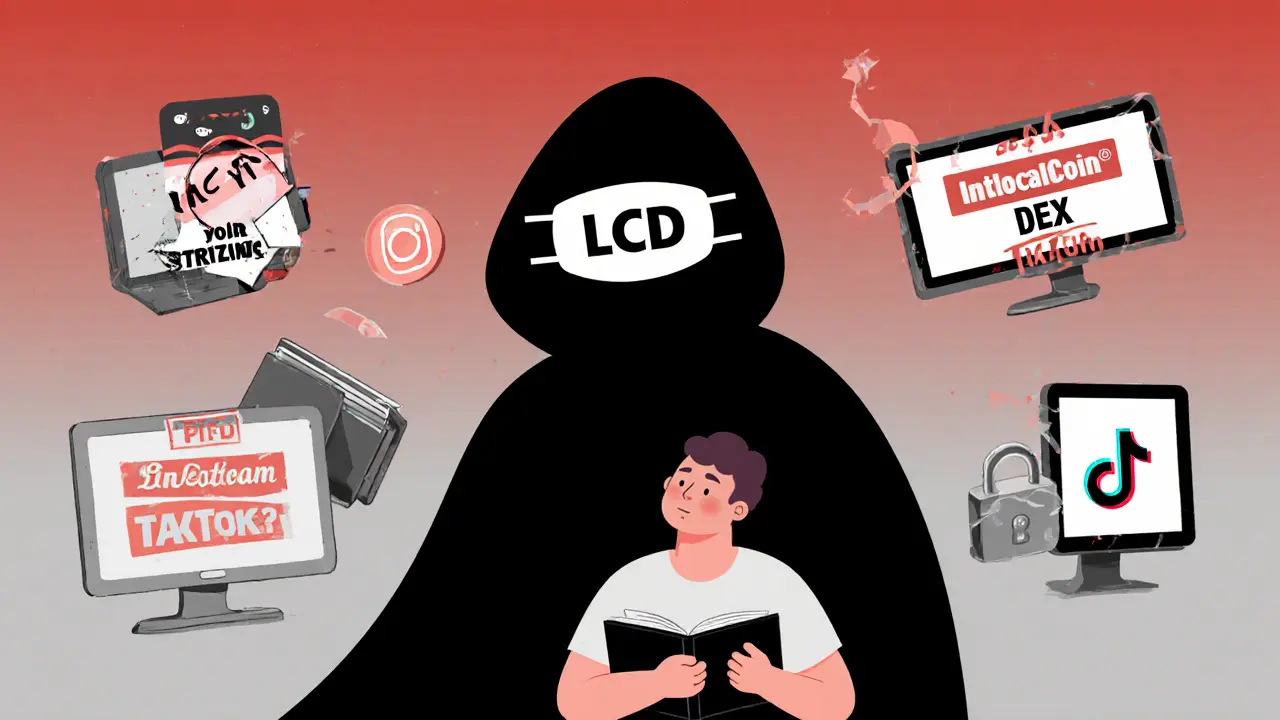Fake Crypto Platform: How to Spot Scams and Avoid Losing Money
When you hear about a new fake crypto platform, a deceptive website or app pretending to be a legitimate crypto exchange or wallet. Also known as crypto scam, it often looks professional but has no real team, no liquidity, and no way to withdraw your funds. These aren’t just risky—they’re designed to steal your money fast, often before you even realize what’s happening.
Fake crypto platforms rely on three things: urgency, fake social proof, and promises that sound too good to be true. You’ll see ads claiming "10x returns in 24 hours" or "exclusive access to a new token"—but when you try to withdraw, the site crashes, the support email bounces, or your funds just vanish. Look at the posts here: Coinbook, a platform that doesn’t exist as a real exchange, was flagged because users couldn’t get their money out. Same with SharkSwap, a DEX with zero trading volume and no public team. These aren’t bugs—they’re warnings. And Edom (EDOM), a coin with inflated prices and zero real use, shows how fake market data tricks people into thinking something has value when it doesn’t.
Real exchanges like Coinbase or Kraken have clear teams, audits, and customer support you can reach. Fake ones hide behind anonymous GitHub accounts, use stock images for their "team," and have no history on CoinMarketCap or CoinGecko. They often copy the design of real sites—down to the fonts and colors—so you need to check the URL, read the fine print, and search for user reviews outside their own forum. If a platform isn’t listed on any major exchange, has no whitepaper, and no one talks about it on Reddit or Twitter except for paid shills, it’s a red flag. And if they ask you to send crypto to an address they control—especially before you can trade—it’s a scam.
The list below shows real cases where people lost money to platforms that looked real but were built to disappear. You’ll find reviews of fake crypto platform examples like Coinbit, HaloDeX, and IceCreamSwap—all of which either collapsed, had zero volume, or were never real to begin with. These aren’t hypotheticals. These are the exact platforms people got burned on last year. We didn’t make them up. We tracked them. And we’re showing you exactly what to avoid before you become the next statistic.
LocalCoin DEX Crypto Exchange Review: Why It Doesn't Exist and How to Avoid the Scam
LocalCoin DEX is not a real crypto exchange - it's a scam targeting new users. Learn how the fraud works, how to spot fake DEX sites, and which real platforms to use instead in 2025.
Details +